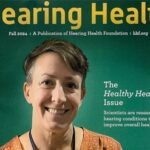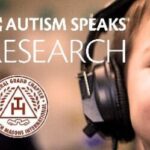June 10, 2022
Autism Speaks, with the support of a Royal Arch Research Assistance grant, is funding one pilot research project and one post-doctoral fellowship to advance the study of central auditory processing disorder (CAPD) in autism.
Royal Arch Masons International ranks among the leading charities helping children with central auditory processing disorder, a condition that affects the ability to understand speech. People with CAPD can typically hear normally, but have difficulty processing what they hear.
“We’re deeply grateful to the Royal Arch Masons for this opportunity to support research that improves the lives of those in our community experiencing communication challenges,” said Donna Murray, vice president of clinical programs at Autism Speaks. “Our longstanding partnership has made it possible to advance our understanding of auditory processing disorders, with the potential for targeted treatments that will improve lives.”
The pilot study will be funded at $60,000 for one year, and the fellowship recipient will be awarded $55,000 per year for two years.
Post-doctoral Fellowship
Sara Skiba, Ph.D.
Sara Skiba, Ph.D.
University of California, San Francisco
This study will examine the relationship between auditory processing and language skills in a sample of autistic children between the ages of 8 and 16.
Our goal: To understand the specific mechanisms by which CAPD impacts language development in children with autism.
Sara Skiba’s team will evaluate each participant’s auditory processing using two measures: a screening assessment and magnetoencephalography, a non-invasive medical test that measures the magnetic fields produced by the brain’s electrical currents. These results will be compared with the participant’s language abilities. The findings will give researchers a deeper understanding of the causes of auditory and communicative dysfunction in autism, opening the door to more targeted treatments.
Pilot Research Study
Timothy Roberts, Ph.D.
Timothy Roberts, Ph.D.
Children’s Hospital of Philadelphia
This study will use a language assessment and magnetoencephalography to examine how CAPD manifests in children with autism, and the specific ways that this affects their understanding of language.
Our goal: To examine how atypical central auditory processing affects autistic children’s ability to hear and understand spoken words.
Researchers think that auditory processing issues may cause autistic children to become distracted by particular sounds in spoken words, affecting their ability to understand the word as a whole. Timothy Roberts and his team will attempt to confirm this hypothesis, creating an opportunity to develop hearing aids or other assistive devices that remove these distractions and improve language abilities in children with ASD.



